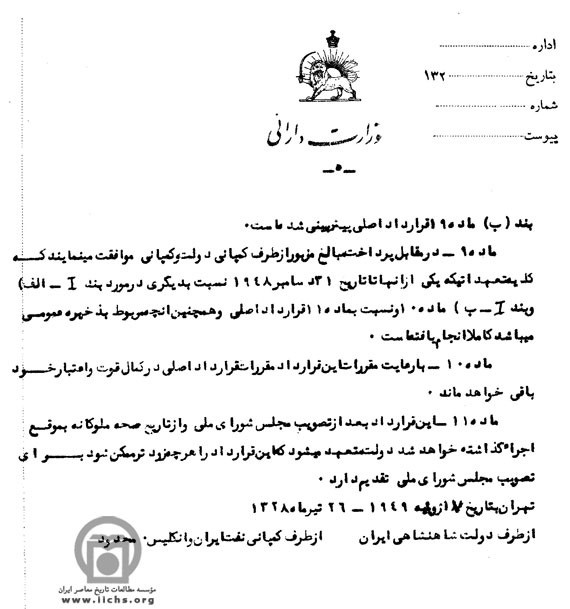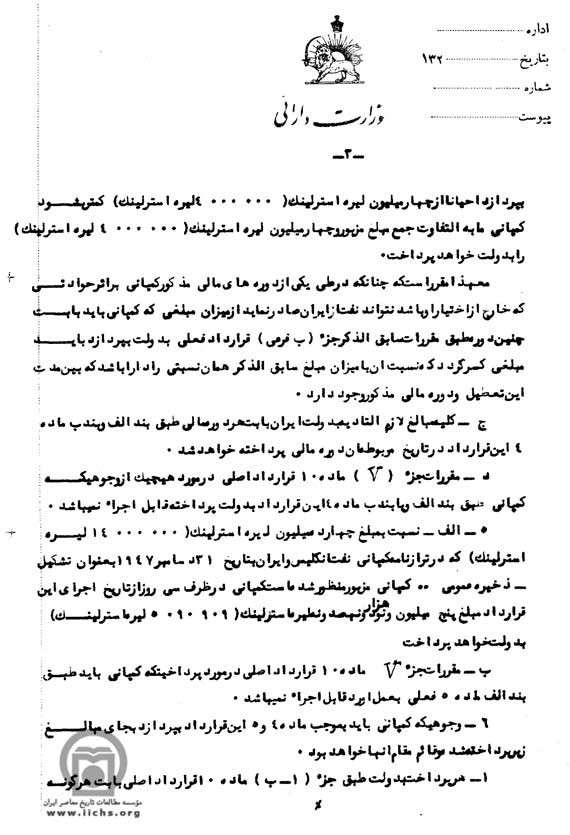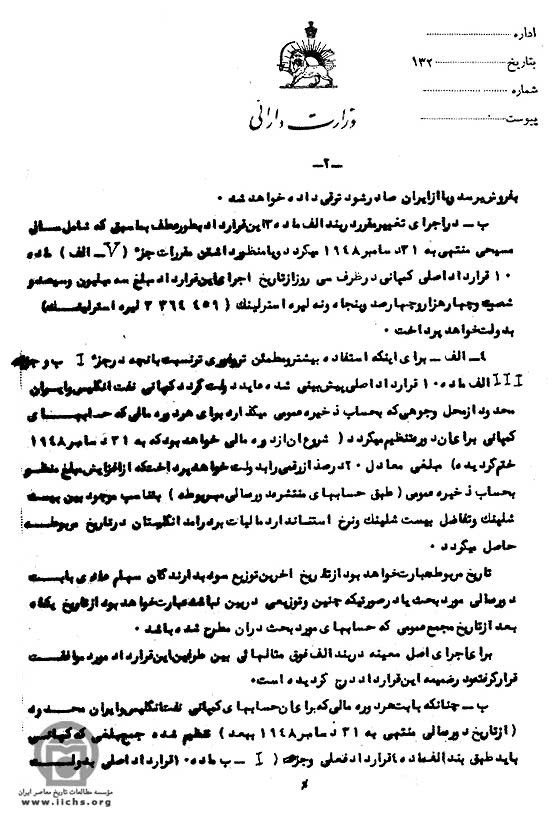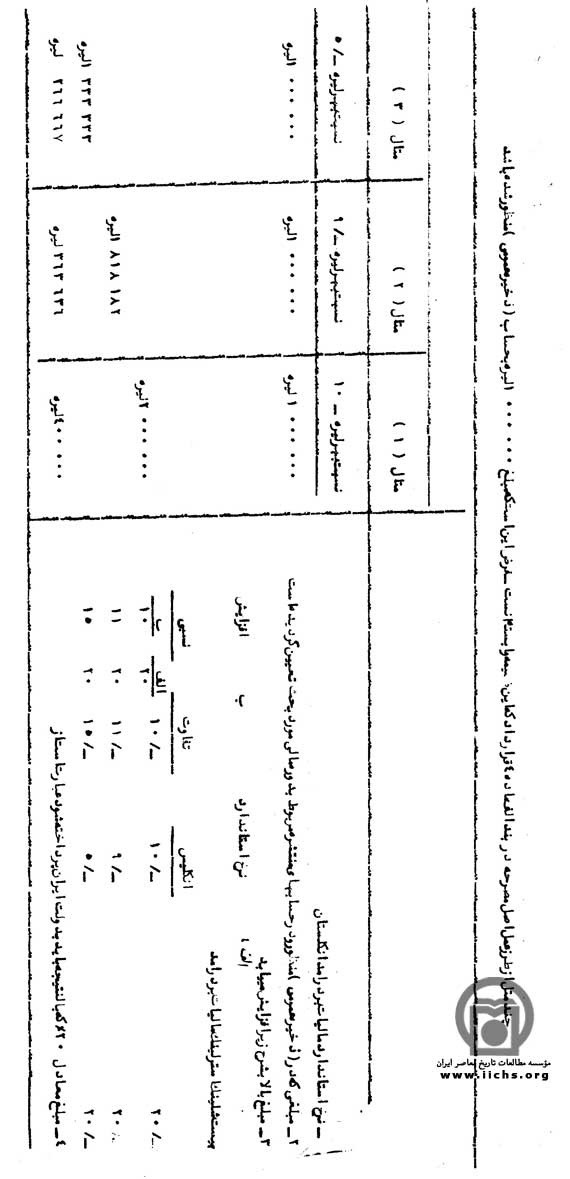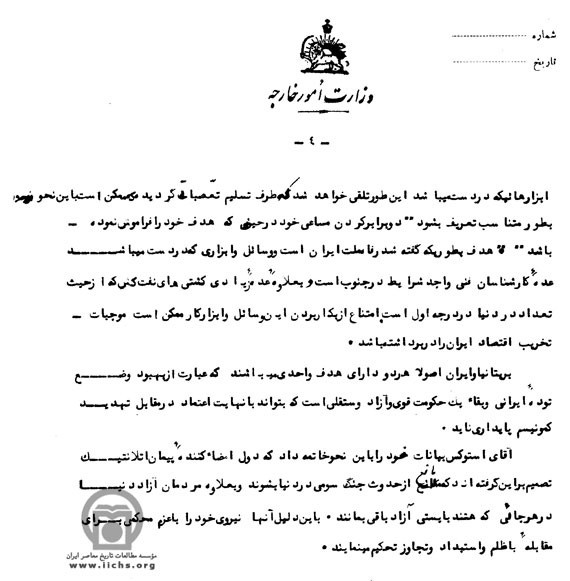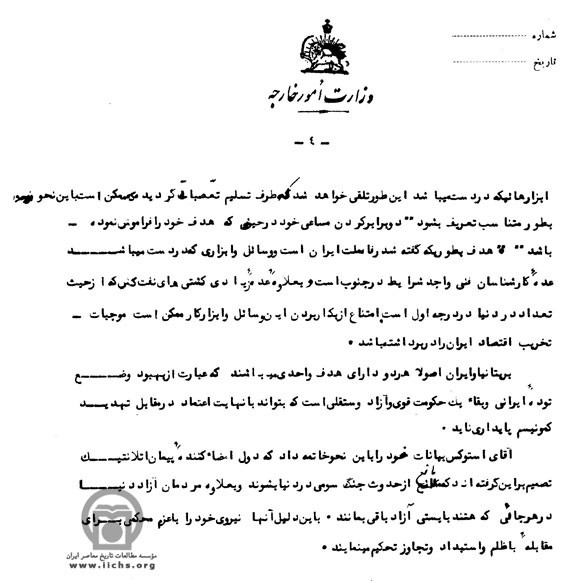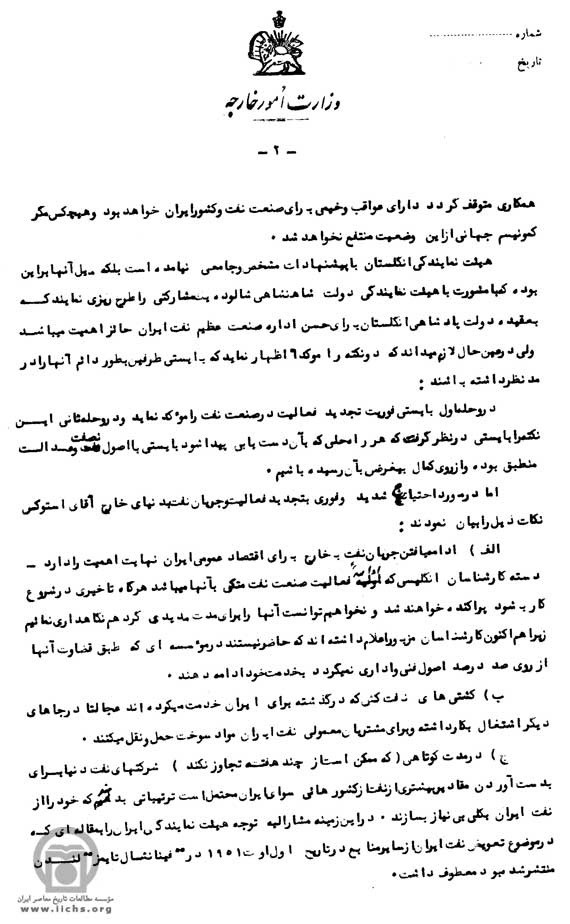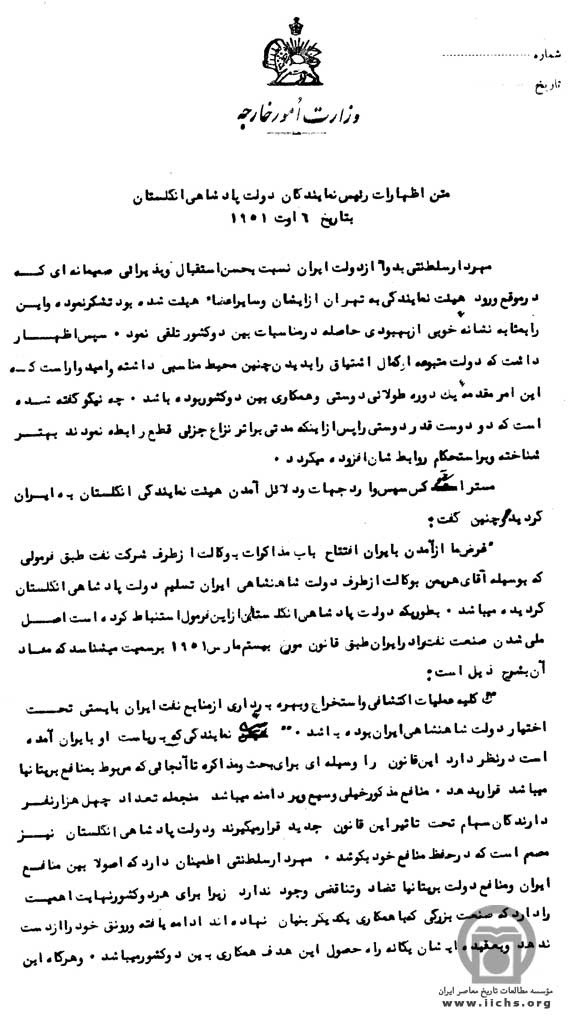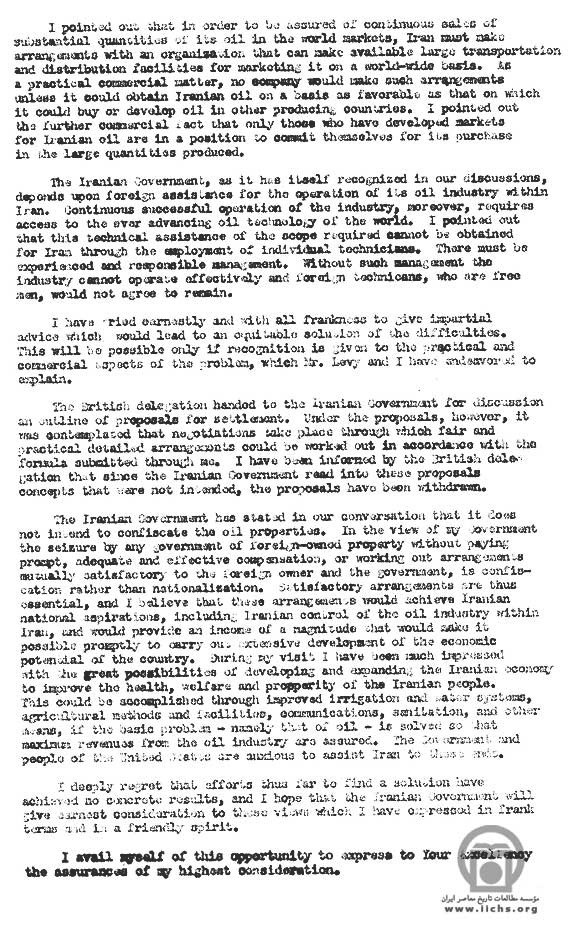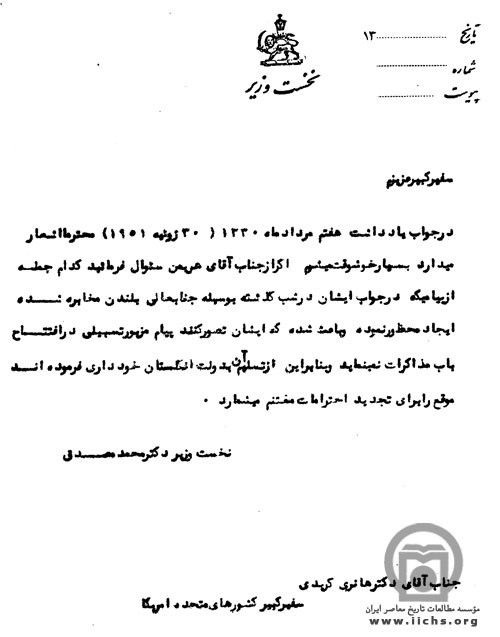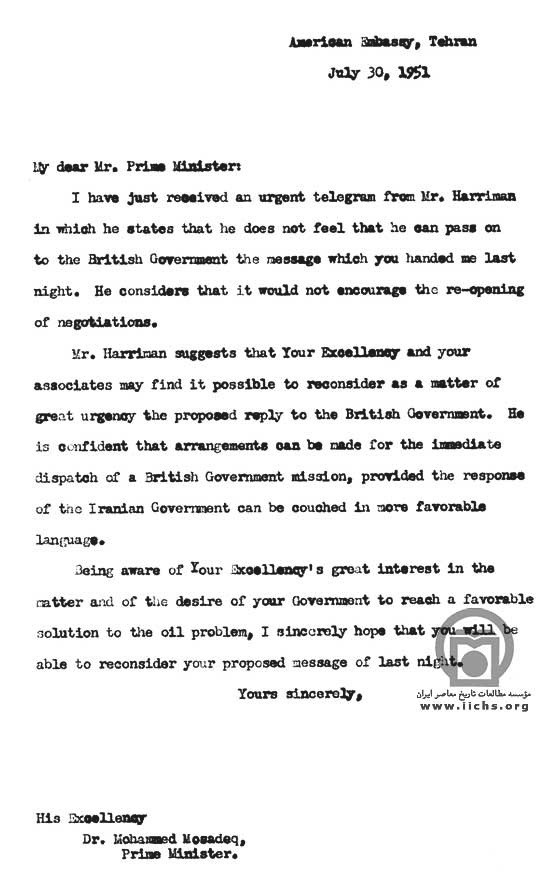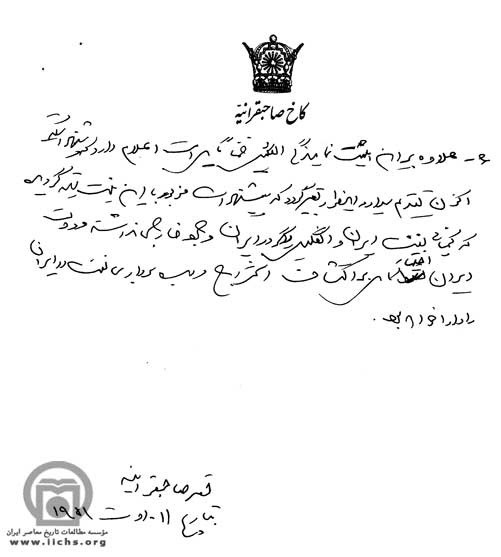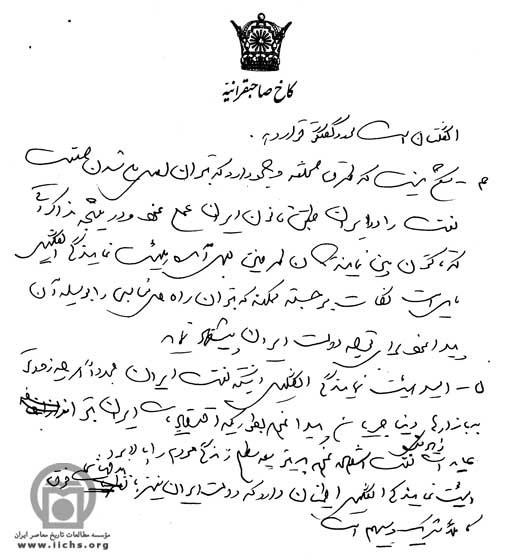Researches on many events of Iran’s contemporary history would not be possible except that of surveying the question of oil and its role in historical events. Some of experts call 1921 coup as the oil coup. Renewing D’Arcy’s contract in 1933 is a turning point in Iran’s contemporary history. The Azerbaijan event had undeniable connection to the oil question; the rise of national movement and Dr. Mossaddeq and 19 August coup were all disputes over oil. The Consortium contracts after the coup and in 1970s, the sudden rise of oil prices at this time and severe fluctuation in the economies are all among the facts that necessitate regarding this product as the main income source of Iran.
The oil contracts had been concluded under military pressures of the governments. The 1933 contract was concluded at a time when martial law had been declared in Tehran. Oil has been the basis of Iran’s single product economy. Furthermore, has been a political good in most cases, and this is due to this fact that during the past one century, Iran’s political economy had been a function of this product. Many of approaches in domestic and foreign policies had deep roots in oil. The following records represent some junctures in Iranian history.
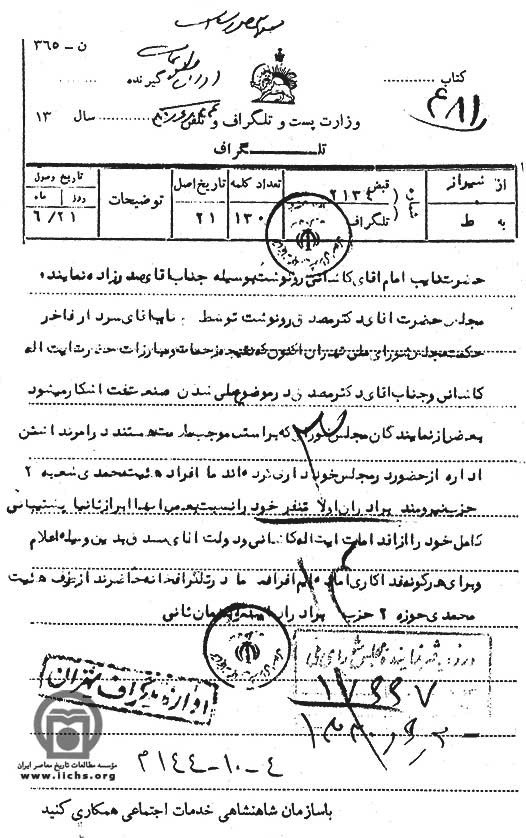
The Nationalization of Oil Industry
A telegram from Shiraz to Tehran on the nationalization of oil industry and backing Ayatollah Kashani and Mossaddeq’s administration. [M 144-10-4]
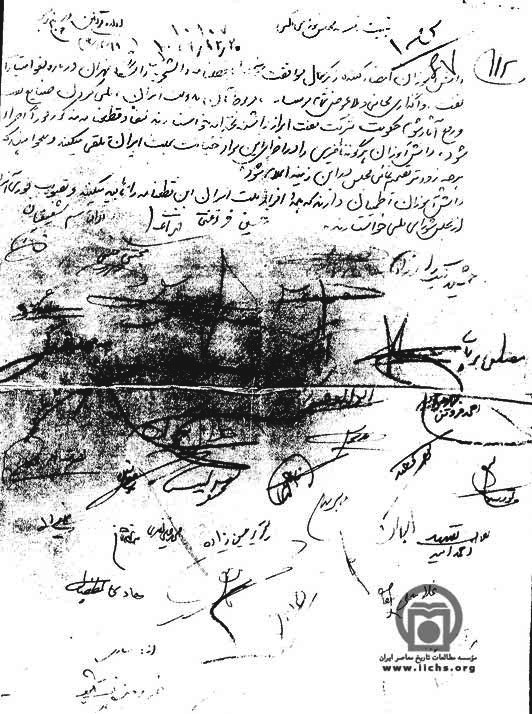
The Nationalization of Oil Industry
The letter of some students announcing their support of the resolution issued by the students of university of Tehran on the nationalization of oil industry [M 144-37-6]

The Nationalization of Oil Industry
The original text of eight members of the majlis to the oil commission [M 144-185-41]
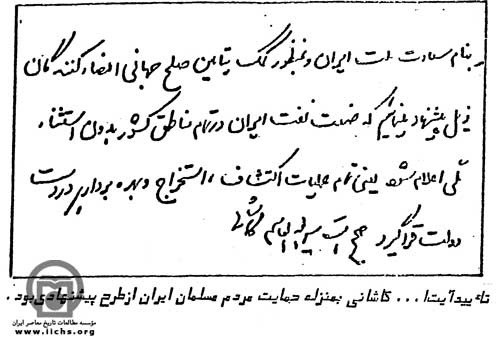
The Nationalization of Oil Industry
Ayatollah Kashani’s consent of Moslem Iranians’ support of the proposed bill for the nationalization of oil industry [M 144-185-42]
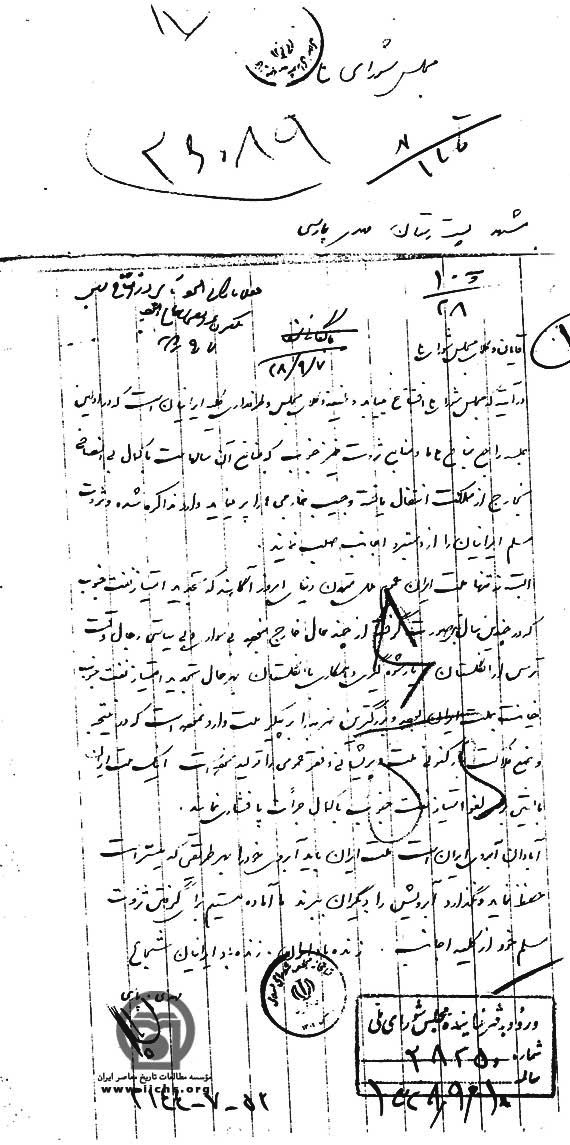
The Nationalization of Oil Industry
A letter from Mehdi Parsi to the members of national consultative assembly on the necessity of cancellation of the South oil concession and terminating the British and other foreign influence in Iran. [M 144-7-52]
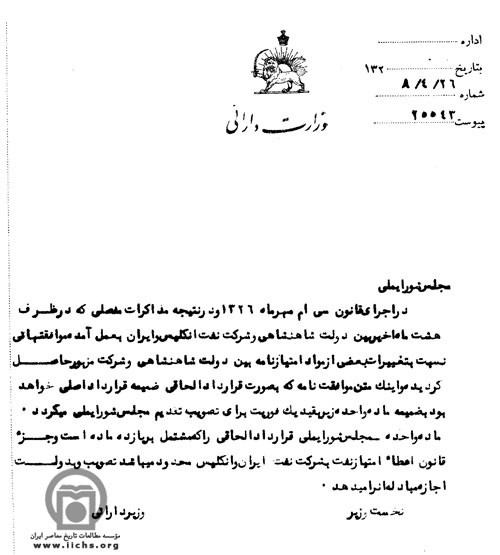
The Nationalization of Oil Industry
The official letter of ministry of finance to the national consultative assembly on the annexation of some articles and acts to Iran and Iran o British oil company and raising of Iran’s oil incomes. [P 3303/1] (page 1)
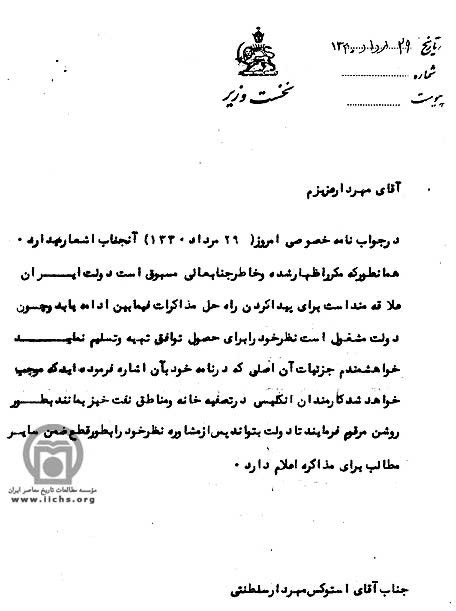
The Nationalization of Oil Industry
Dr. Mohammad Mossaddeq’s letter to Stokes, the British keeper of royal seal, asking explanation on stay of the British staff in the refineries and oil fields, and Mr. Stokes’s views on the related talks on nationalization of oil and the grounds for the British missions’ journeys in Iran. [P 65824] (page 1)
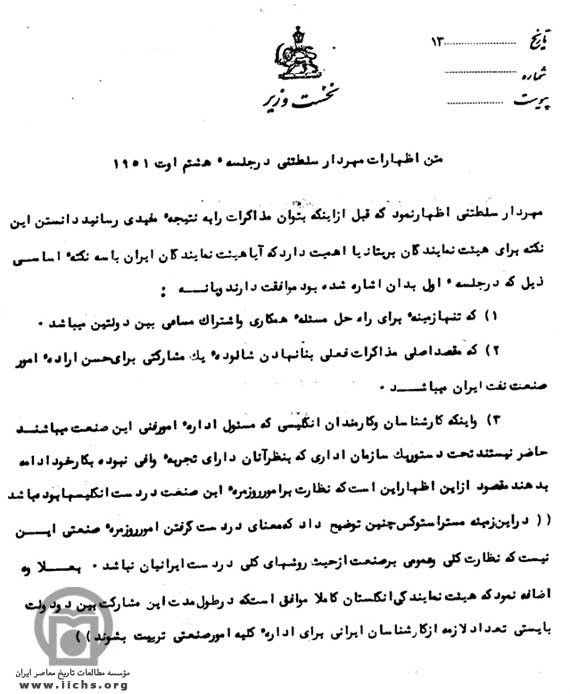
The Nationalization of Oil Industry
The viewpoints of the British keeper of royal seal on the three main points on the oil talks between the two governments and the necessity of Iran’s consent to the continuance of the talks. [P 65823]
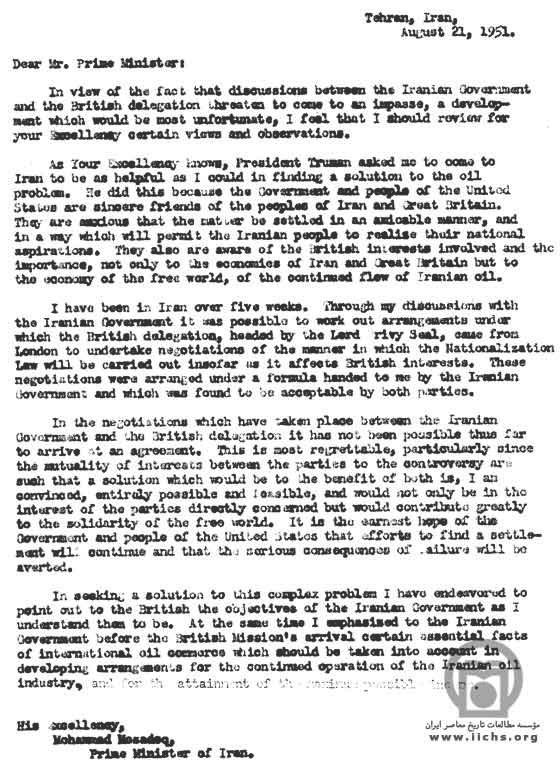
The Nationalization of Oil Industry
A letter to the prime minister, Dr. Mohammad Mossaddeq on the deadlock of talks between Iran and the British mission, and the mission’s announcing its concern over Iran’s approach to their proposals, and a reference to Iran’s developments. [P 65836] (page 1)
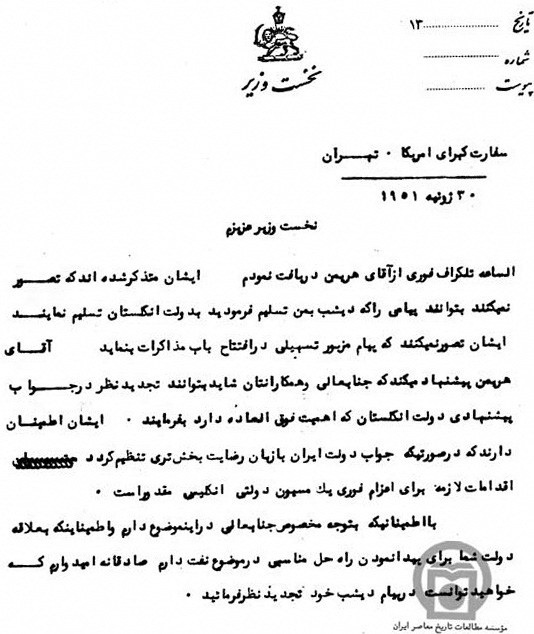
The Nationalization of Oil Industry
The US ambassador, Dr. Henry Grady’s correspondence to Dr. Mohammad Mossaddeq, in which he demands a revision on Iran’s reply on oil question, and Dr. Mossaddeq’s answer indicating that Iran’s reply to the British government had not been ambiguous. [P 65821](page 1)
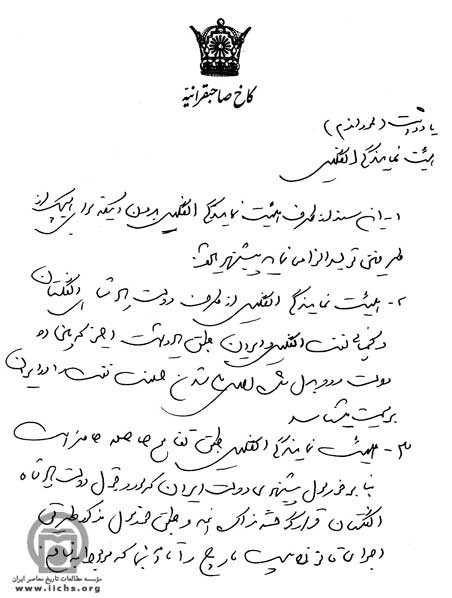
The Nationalization of Oil Industry
A note by the British legation in Iran on acknowledging the nationalization of Iran’s oil industry and offering proposals for the transport of Iranian oil to the world market and the foundation of a new institute under the Iran’s oil company for this purpose. [P 65865] (page 1)
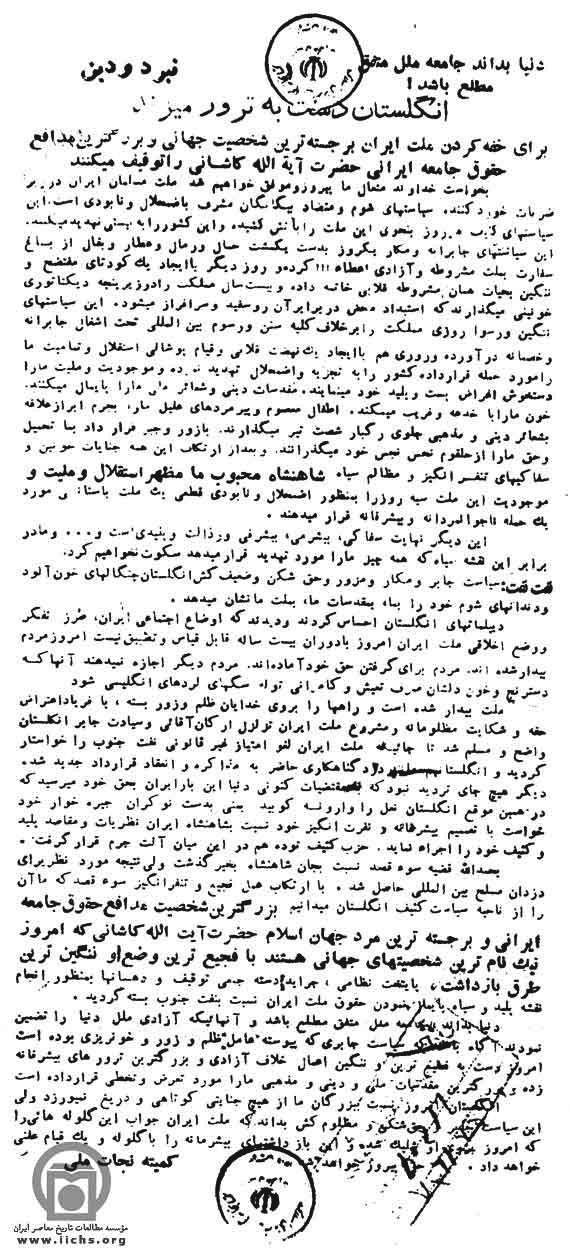
The Nationalization of Oil Industry
A declaration of “National Rescue Committee” on condemning the British policy in Iran, and protest against Ayatollah Kashani’s detention, and an attempt on the Shah’s life, closure of dailies, and military occupation of the capital, and cancellation of the south oil concession on behalf of the nation. [M 144-7-1]
iichs.ir/vdcc.sq1a2bqeoy-82.html
